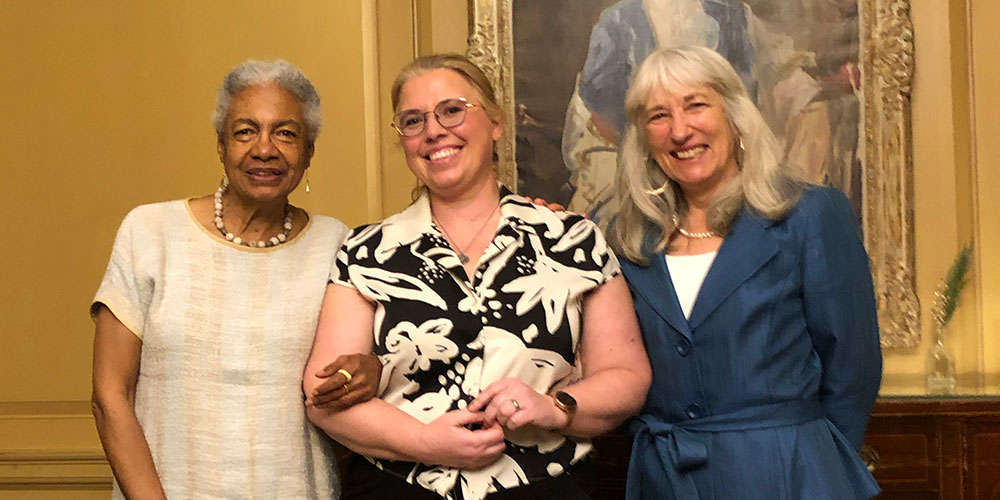That early curiosity led Julien to explore the intersections of Africa, Europe, and the Americas, connections that she pursued as a scholar, cultural organizer, and institution builder. Her concept of the “extroverted African novel,” now widely cited, grew from a simple but powerful question: Why do some African novels cross borders to Europe and the U.S. while others remain unknown?
Julien’s career spanned continents and disciplines. As the founding director of the West African Research Center in Dakar, Senegal, and co-founder of the New Orléans Afrikan Film and Arts Festival, she worked across borders and languages to foster intellectual exchange. Julien brought those same values into the classroom.
One course in particular, Black Paris, explored the influence of African American writers and artists on French thought. The course was celebrated and attended by undergraduates especially, becoming one of the department’s most popular course offerings.
“Initially, I was looking at African American artists who had left the States after World War I to go find work and opportunities in places where they weren’t measured or confined by their racial identity,” Julien explains. “But ultimately, I realized that this African American presence in Paris had a huge impact on French writers and artists. I broadened the course to include writers from the Caribbean and from Senegal, and eventually I also included Jean-Paul Sartre and Jean Genet—French writers who explored the difficulties, the challenges, and the anger of African Americans who were then in France.”
The course had a profound impact on countless undergraduates at IU and, even after retirement, Julien continues to connect with former students around the globe. One former student helped her visit and give talks at Peking University in China and recently visited Julien’s home in Dakar during a major Asia-Africa conference.
“Students open doors for us, too,” Julien says. “That’s part of mentorship. We give something, but we also get something back for what we do.”
Mentorship as a shared journey
For both professors, mentorship has been central to their careers.
“[When you work with graduate students], you feel like you’re working as a team,” Gray says. “You can feel huffy sometimes—you know, ‘They didn’t accept my suggestion!’—but then you feel so gratified and rewarded when they complete their dissertation or when there’s a great moment for them.”
Their students, in turn, describe mentorship that was both rigorous and deeply human. As one anonymous testimonial about Julien states, “Professor Eileen Julien has been a great mentor to me during my time at Indiana University. She is not only intelligent but is also empathic and intuitive … I am so grateful to have spent some time with her because she continues to inspire me to be a better academic and a better person, and there are so few people in the world that have that ability.”
A legacy of impact: The Gray-Julien Award
That spirit of mentorship and impact now finds new life in the Margaret E. Gray-Eileen M. Julien Graduate Award in French and Francophone Studies, which was established by the Department of French and Italian to honor both professors’ incredible contributions to the department and Indiana University as a whole. The award recognizes a student in French and Francophone Studies who has demonstrated potential for innovative and world-oriented scholarship. It was first presented in April 2024 to Ph.D. candidate Hicham Bouhlal and in April 2025 to Ph.D. candidate Elke Defever.



 The College of Arts
The College of Arts